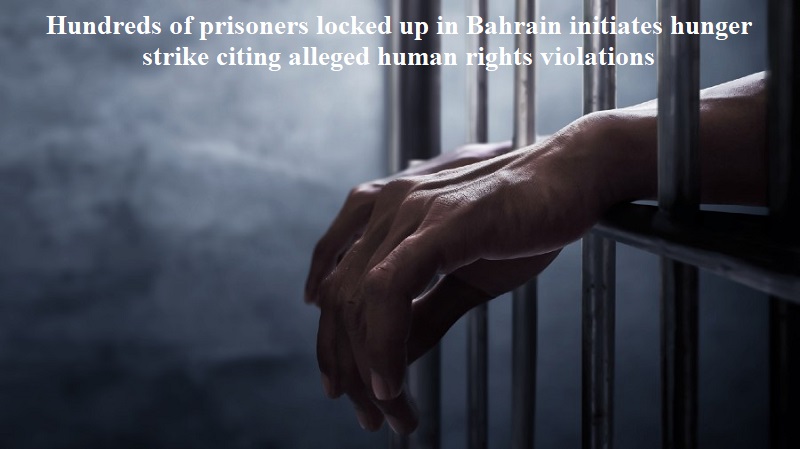
A considerable number of detainees incarcerated in Bahrain have commenced a hunger strike in protest against alleged violations of human rights, as disclosed by a UK-based human rights organization.
According to the Bahrain Institute for Rights and Democracy (BIRD), approximately “at least 500 prisoners” have initiated a hunger strike in response to what they deem “inhumane prison conditions.” The prisoners, confined predominantly to their cells for 23 hours daily, are also facing limitations on practicing their religious beliefs, as stated by the group.
The focal point of this dispute revolves around Jau prison, where dissidents who were apprehended after participating in the pro-democracy demonstrations in 2011 are being held.
The hunger strike commenced on August 9 and has been escalating with more detainees joining the movement.
A statement from the banned Bahraini opposition party, Al-Wefaq, cited the prisoners’ demand for increased time outside their cells. They also seek the ability to conduct congregational prayers in the prison mosque, relaxation of restrictions on family visits, and enhancements to educational facilities. The prisoners emphasized that these demands are not frivolous but rather essential for basic human existence.
In response to inquiries regarding the situation in Bahrain, Vedant Patel, the spokesperson for the US State Department, reported that Secretary of State Antony Blinken conveyed concerns about certain reports during his meeting with Bahrain’s Foreign Minister Abdellatif al-Zayani on July 20. Patel noted that they are aware of and concerned about the reports on the hunger strike, urging Bahrain to continue progress in criminal justice reforms and the upholding of human rights standards.
Observers contend that the ruling monarchy in Bahrain heavily relies on support from Western allies, particularly the US. Some argue that successive US administrations, including under Barack Obama and Donald Trump, have not effectively pressured the Bahraini government to address human rights violations. Despite initial criticism during the 2011 suppression of the uprising, the focus on Bahrain’s human rights situation reportedly diminished over time, particularly under the Trump administration, which fostered a closer relationship with Bahrain for its participation in the Abraham Accords and its recognition of Israel.

Post Your Comments